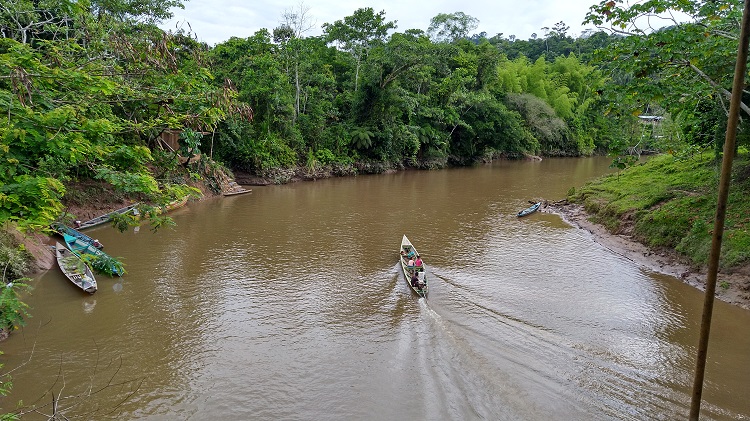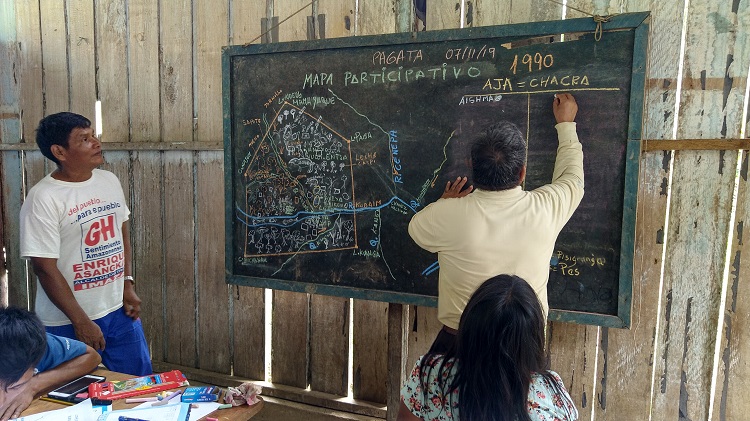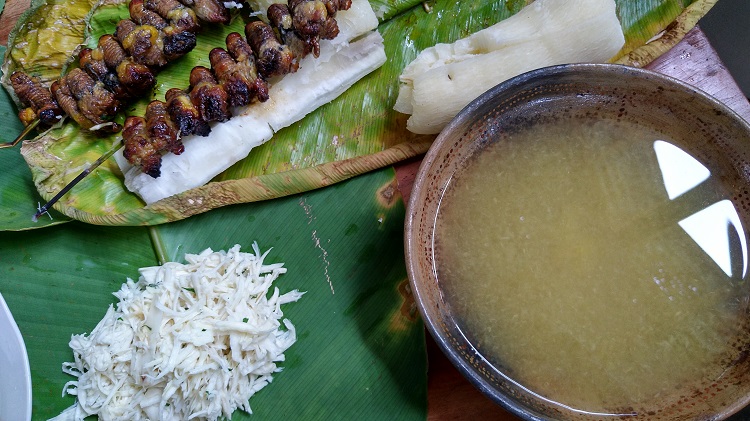Indigenous peoples, their knowledge and their livelihoods have been threatened for centuries. Every two weeks, an indigenous language is lost and with it, indigenous knowledge, threatening the survival and resilience of the people concerned.
 The Natural Resources Institute is pleased to be part of the new ‘Global-Hub on Indigenous Peoples’ Food Systems’, launched recently by the Food and Agriculture Organization (FAO) of the United Nations. This knowledge centre is fully dedicated to bridging the gap between academic and indigenous peoples’ scientific and ancestral knowledge.
The Natural Resources Institute is pleased to be part of the new ‘Global-Hub on Indigenous Peoples’ Food Systems’, launched recently by the Food and Agriculture Organization (FAO) of the United Nations. This knowledge centre is fully dedicated to bridging the gap between academic and indigenous peoples’ scientific and ancestral knowledge.
NRI’s Dr Pamela Katic and Dr Tania Eulalia Martinez Cruz bring to the Global-Hub the long-standing and interdisciplinary experience and expertise of NRI on food security, nutrition and social inclusion, contributing to the Global-Hub’s research, and helping to inform decision makers at policy level nationally and internationally.
“According to the World Bank”, explains Dr Katic, “there are about 370 million indigenous peoples in the world today, living in 90 countries. They live, own and occupy approximately one quarter of the world’s lands and waters which hold 80% of the world’s biodiversity.”
“Wherever they live, indigenous peoples face distinct pressures, including being among the poorest and most marginalized in their societies. This manifests in various ways, including insecure land and property rights, discrimination, heightened vulnerability to risk and climate change, and a wide range of health, nutrition, education and other related socio-economic disparities. Those disparities have been exacerbated with the current COVID-19 pandemic. Thus, to achieve the United Nations’ Sustainable Development Goals (SDGs), a great part of the efforts should focus on indigenous populations.”
Many of NRI’s projects apply food systems approaches to address the challenges of food and nutrition security in low and middle-income countries. Understanding how food choice is a social and economic expression of identities, preferences and cultural meanings is integral to influencing nutrient intake and health.
Part of the work by Drs Katic and Martinez Cruz focuses on generating knowledge on how to improve the nutrition and food security, and sovereignty of indigenous peoples in the Peruvian Amazon, using intercultural and participatory  approaches.
approaches.
Dr Martinez Cruz explains: “our research aims to develop methodologies that can help us evaluate the linkages between agroforestry and nutrition outcomes, and understand the role of women and sociocultural norms in mediating these linkages. Our findings will hopefully inform actions and investments in other regions of the world.”
The 27th session of the Committee of Agriculture (COAG) took place recently. The COAG is one of FAO’s governing bodies that works on policy and sets regulations on issues linked to livestock, food, safety, nutrition, rural development and natural resource management. Established in 1971, the Committee has over 100 Member Nations and generally meets every two years, but may hold additional sessions if needed. In the 27th session, the Global-Hub on Indigenous Food Systems was officially endorsed by state members who recognised the need for a Global-hub to support indigenous peoples. The Global-Hub brings together indigenous and non-indigenous experts and organisations, scientists and researchers to establish a knowledge- and rights-based dialogue.
“The Global-Hub”, says Dr Martinez Cruz, “will inform policy discussions and research agendas on food security and sovereignty, biocultural diversity, and climate change at local, national and regional level, ensuring that indigenous peoples’ knowledge and rights are at the centre, and that their food systems are valued and protected."
 “Thus, by working horizontally and vertically in knowledge sharing, the Global-Hub aims to support the well-being of indigenous peoples and the preservation of their ancestral territorial management practices and food systems that have fed indigenous peoples for centuries, while preserving 80% of the remaining biodiversity on the planet. We will also support the younger generations to respond to the different challenges we face in the world today.”
“Thus, by working horizontally and vertically in knowledge sharing, the Global-Hub aims to support the well-being of indigenous peoples and the preservation of their ancestral territorial management practices and food systems that have fed indigenous peoples for centuries, while preserving 80% of the remaining biodiversity on the planet. We will also support the younger generations to respond to the different challenges we face in the world today.”
The COAG stressed the key role of indigenous peoples as protectors of biodiversity and knowledge holders about natural resource management, innovations and food systems, and the need for scientists and stakeholders to follow interculturality in their understanding of indigenous food systems.
Dr Katic concludes by saying: “we are delighted that with our research at NRI we can contribute to solving global challenges and to not leaving anyone behind in achieving the SDGs 2030.”
To find out more about:
NRI’s Livelihoods and Institutions Department
The United nations Global-Hub on Indigenous People
The United Nations Food and Agriculture Organisation

